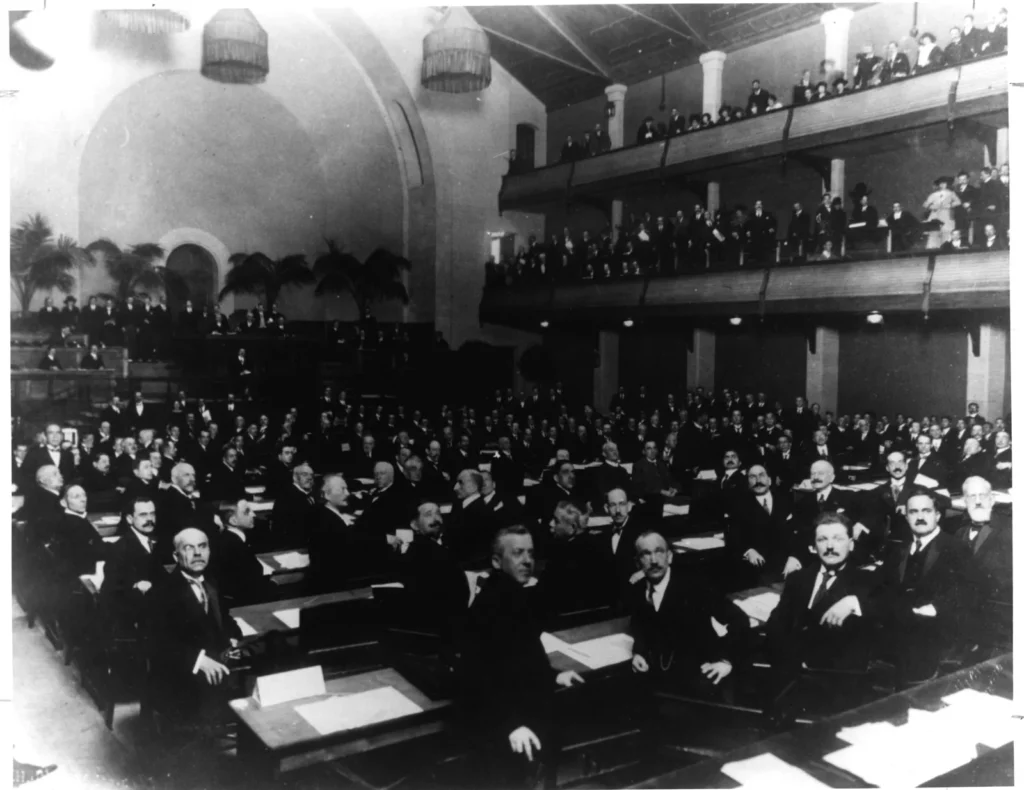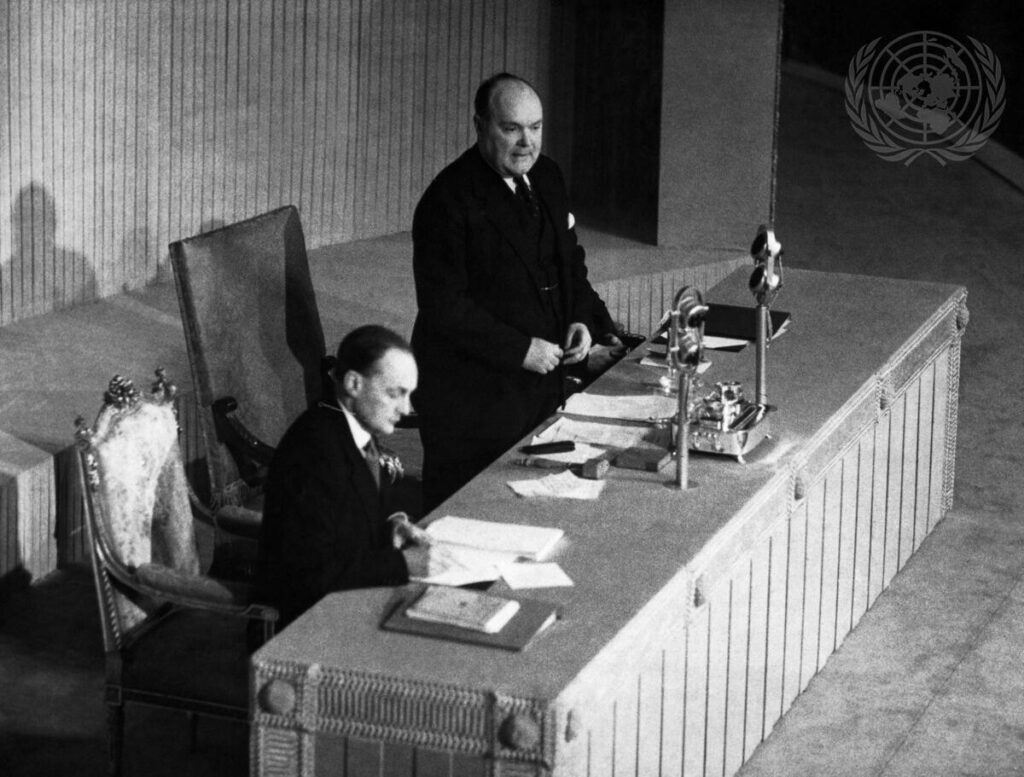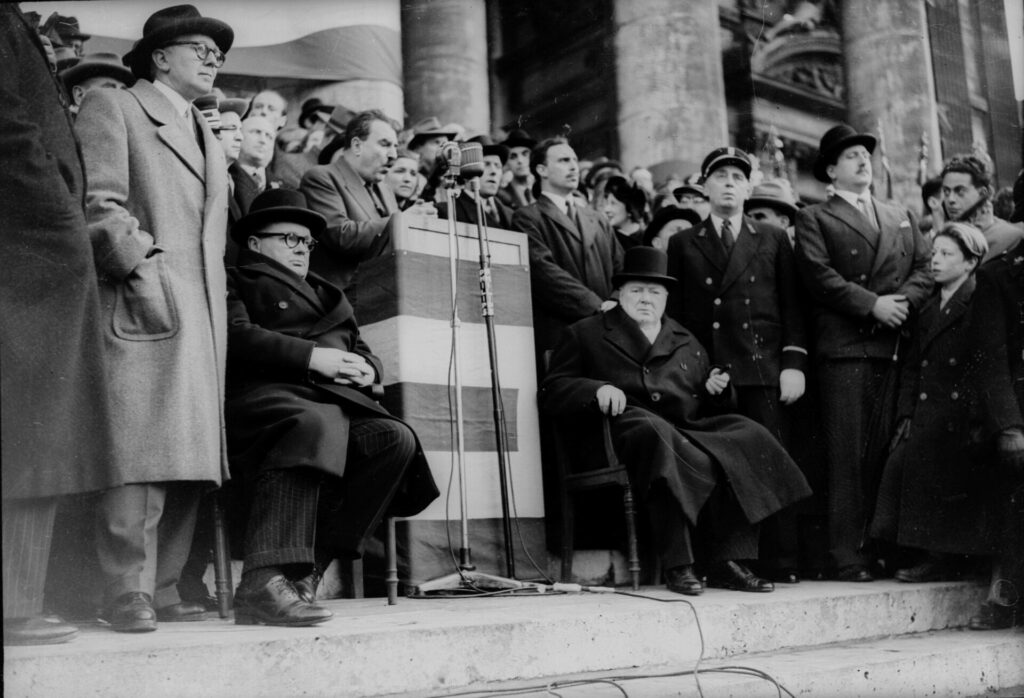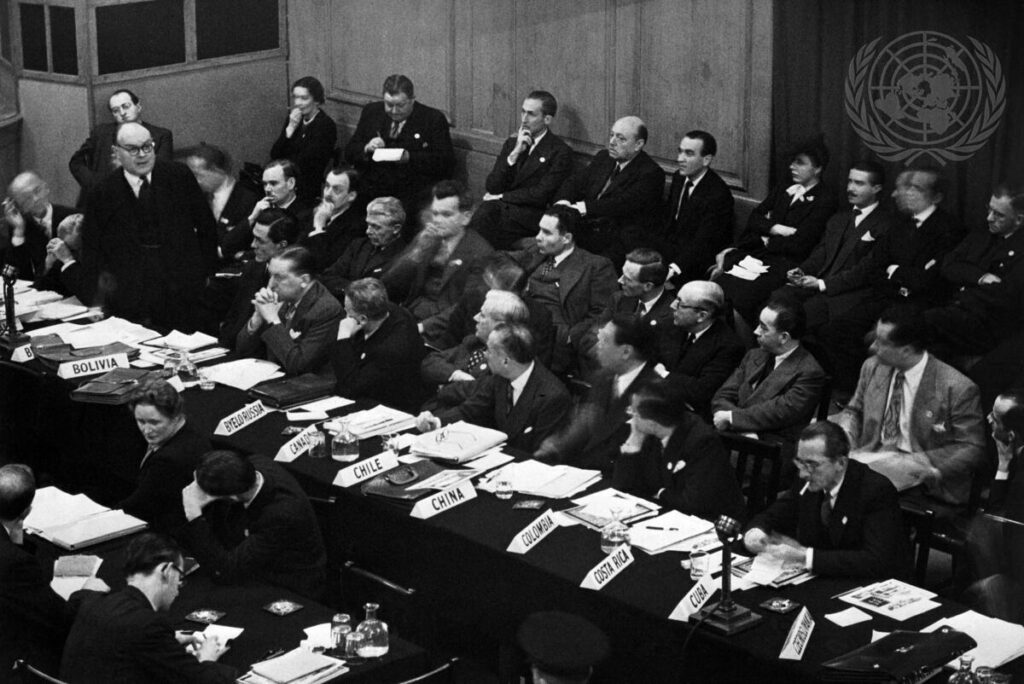On this day 77 years ago, 10 January 1946, prominent Belgian politician Paul-Henri Spaak presided over the first-ever United Nations General Assembly at the Methodist Central Hall in London.
The socialist politician, statesman and diplomat was a key figure in the Belgian resistance during the Second World War, having served as Foreign Minister of the Belgian government in exile under Prime Minister Hubert Pierlot in London.
However, it was in 1946 that he rose to international prominence at the first-ever session of the UN General Assembly. In the aftermath of the Second World War and the victory over Nazi-Fascism in Europe, the United Nations officially came into force on 24 October 1945.
A few months later on 10 January 1946, the first-ever UN General Assembly was held in London – with the representation of 51 countries.

The first UN General Assembly. Credit: UN Photo / Marcel Bolomey
During the first plenary session, Paul-Henri Spaak, then-Belgian Minister of Foreign Affairs, was elected by representatives as the first President of the first General Assembly.
In a secret ballot, Spaak received 28 votes, while the Norwegian Trygve Lie, another candidate for the presidency, received only 23. Lie was elected first Secretary-General of the United Nations a few weeks later.
On 24 January, the General Assembly passed its first resolution, this time in New York City – concerning the peaceful use of nuclear energy and the suppression of weapons of mass destruction.

Paul-Henri Spaak addresses the plenary on 10 January 1946. Credit: UN Photo / Marcel Bolomey
Under Spaak's diplomatic leadership, Belgium also became the first small power to sit on the newly-established UN Security Council in November 1946, alongside Syria and Colombia as the three non-permanent members.
With his international reputation greatly enhanced, he established himself as the new head of the Belgian government in March 1946 – combining it with his work at the UN – and then also from 20 March 1947 to 11 August 1949. To get a sense of his dominance in post-war Belgian politics, Spaak served as Belgian Foreign Minister until 1966, having first entered the role in 1939, serving the first years during the war in exile.
Spaak would also help draft the first-ever UN Charter. He would preside as President of the General Assembly up until 1947. His important role in establishing institutional and multilateral cooperation among states at the UN remains less well-known.
"Mr Europe"
Today, he is remembered as being one of the founding fathers of the European Union – with one of the main buildings in the European Parliament named after him.
Spaak is best remembered to have used his position as head of Belgian diplomacy to strongly advocate for European cooperation – earning himself the affectionate nickname of "Mr Europe."

Winston Churchill (right) meets Prime Minister and Foreign Affairs Minister Paul-Henri Spaak (left) prior to a pro-Europe demonstration in 1949. Credit: Belga Archives
Spaak's legacy to this date survives as a committed internationalist who fought against nationalism. "I am convinced that the future belongs to the great human communities," he once said. "Europe is one of these communities."
He first helped set up the Council of Europe in 1949. His report in 1956, the so-called Spaak Report, was key to setting up the European Economic Community – the EU’s precursor – a year later. His presence was felt in every major turning point of post-World War politics, from heading the negotiations for the European Common Market to becoming NATO's Secretary-General from 1957 to 1961.
Notably, Paul-Henri Spaak's mother, Marie Janson, was the first female Senator to be elected in Belgium, as early as 1921. Paul-Henri attributed his political education to her.
He was also a gifted and well-regarded orator, which underpinned his statesmanship qualities, often drawing comparisons to British Prime Minister of the time Winston Churchill.
"I was told that I look like Churchill and speak English like [French-American actor] Charles Boyer," Spaak once said. "Of course, I would rather speak English like Churchill and look like Charles Boyer."
"Today in History" is a new historical series brought to you by The Brussels Times, aiming to take you on a trip down memory lane for newcomers and Belgians alike, written and compiled by Ugo Realfonzo (Editor).

